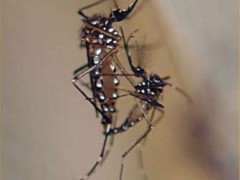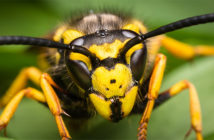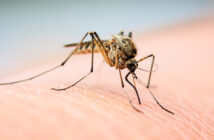Malaria is killing more people worldwide than previously thought, but the number of deaths has fallen rapidly as efforts to combat the disease have ramped-up.
Yet, as revealed in a BBC Radio 4 Costing the Earth programme broadcast on 7 February 2012, novel methods of control are being developed.
More than 1.2 million people died from malaria worldwide in 2010, twice the number found in the most recent comprehensive study of the disease, according to a press release detailing new research from the Institute for Health Metrics and Evaluation (IHME) at the University of Washington, USA.
IHME researchers say that deaths from malaria have been missed by previous studies because of the assumption that the disease mainly kills children under five years of age. IHME found that more than 78,000 children aged five to 14 and more than 445,000 people aged 15 and older died from malaria in 2010, meaning that 42% of all malaria deaths were in people aged five and older.
|
Researchers at IHME say the biggest drivers of the decline in malaria deaths have been the scale-up of insecticide-treated bed nets and artemisinin-combination treatments (ACTs). This has been accomplished through the advent of the Global Fund to Fight AIDS, Tuberculosis and Malaria in 2001 and the creation of organisations focused on fighting malaria, such as the World Health Organisation’s Roll Back Malaria, Malaria No More, and Nothing But Nets. Overall funding for malaria efforts grew from less than $0.25 billion annually in 2001 to more than $2 billion in 2009, according to IHME’s latest estimates. IHME reported in September 2011 that homes owning at least one bed net were associated with a 23% reduction in child mortality. |
|
|
|
In the Costing the Earth programme broadcast on 7 February, Professor Alice Roberts (maybe better known for her appearances on Coast) explored how scientists are turning to ever more ingenious ways to defeat insects. In the BBC description of the progamme it says: “Instead of just going for the kill, they”re finding ways of changing behaviour, of recruiting the predator”s enemies as our friends. They”re using genetic modification and other breeding techniques to ensure that insects breed, but the young don”t survive long enough to do any damage. So can we make insects do our bidding and create a world without pesticides?” A major part of the programme discusses the research work being undertaken by the Oxford-based company, Oxitec – a spin out from Oxford University. Hadyn Parry and Dr Luke Alphey explain their approach of breeding and releasing sterile male mosquitoes – a form of mosquito birth control – in the battle against dengue fever, where there is neither a medication nor vaccine. Dr James Logan and Dr Mark Rowland from the London School of Hygiene and Tropical Medicine are also interviewed. To listen to the radio programme click here. Or if in difficulty email the editor as a Podcast of the programme is available. |
||




